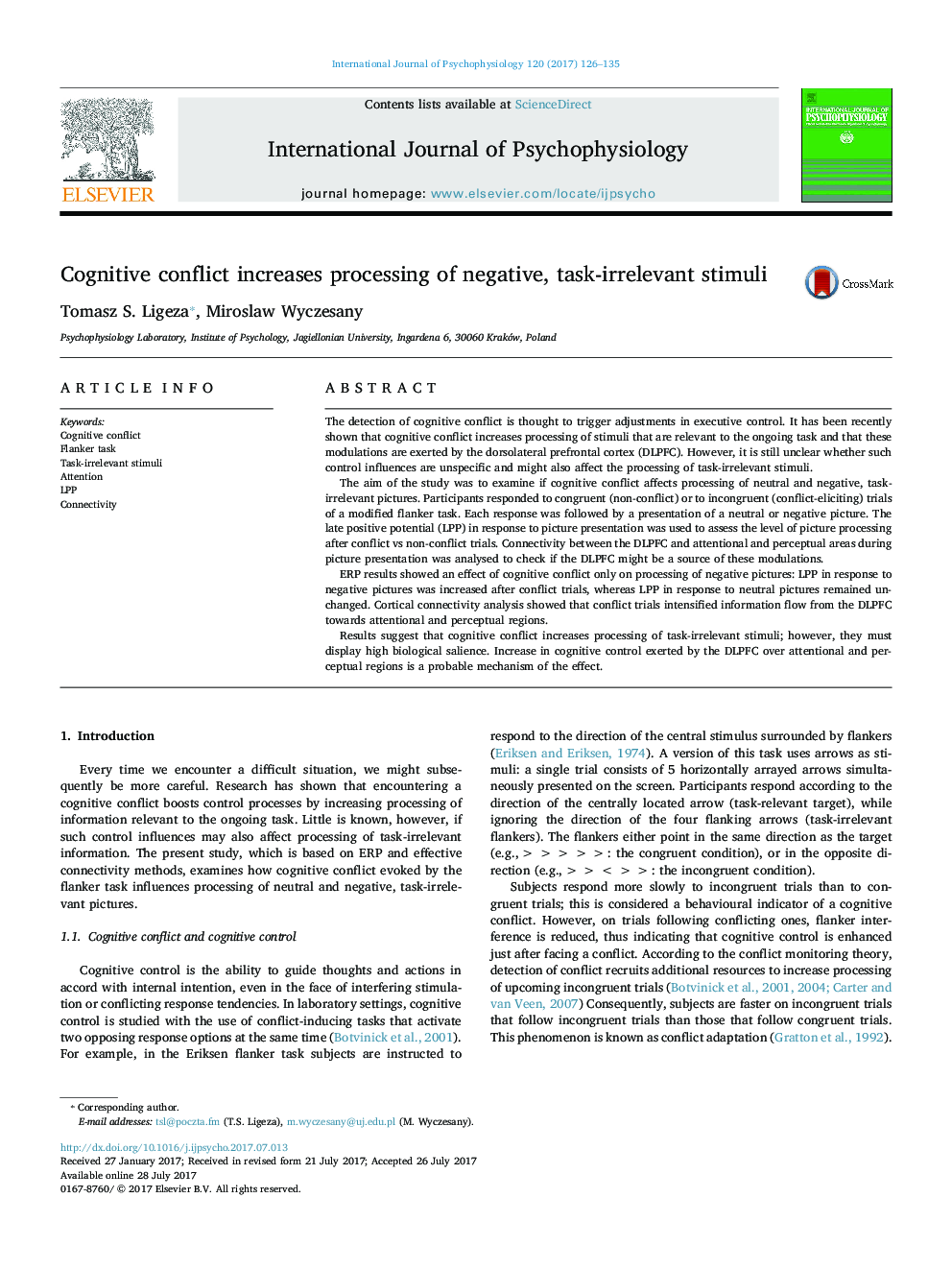| کد مقاله | کد نشریه | سال انتشار | مقاله انگلیسی | نسخه تمام متن |
|---|---|---|---|---|
| 5042221 | 1474376 | 2017 | 10 صفحه PDF | دانلود رایگان |
- Cognitive conflict increases processing of task-irrelevant stimuli, but only when they display high biological salience
- Cognitive conflict triggers causal influences from the dorsolateral prefrontal cortex (DLPFC) towards attentional networks
- Conflict adaptation effects are preserved even if two consecutive trials are interspersed with task-irrelevant pictures
The detection of cognitive conflict is thought to trigger adjustments in executive control. It has been recently shown that cognitive conflict increases processing of stimuli that are relevant to the ongoing task and that these modulations are exerted by the dorsolateral prefrontal cortex (DLPFC). However, it is still unclear whether such control influences are unspecific and might also affect the processing of task-irrelevant stimuli.The aim of the study was to examine if cognitive conflict affects processing of neutral and negative, task-irrelevant pictures. Participants responded to congruent (non-conflict) or to incongruent (conflict-eliciting) trials of a modified flanker task. Each response was followed by a presentation of a neutral or negative picture. The late positive potential (LPP) in response to picture presentation was used to assess the level of picture processing after conflict vs non-conflict trials. Connectivity between the DLPFC and attentional and perceptual areas during picture presentation was analysed to check if the DLPFC might be a source of these modulations.ERP results showed an effect of cognitive conflict only on processing of negative pictures: LPP in response to negative pictures was increased after conflict trials, whereas LPP in response to neutral pictures remained unchanged. Cortical connectivity analysis showed that conflict trials intensified information flow from the DLPFC towards attentional and perceptual regions.Results suggest that cognitive conflict increases processing of task-irrelevant stimuli; however, they must display high biological salience. Increase in cognitive control exerted by the DLPFC over attentional and perceptual regions is a probable mechanism of the effect.
Journal: International Journal of Psychophysiology - Volume 120, October 2017, Pages 126-135
